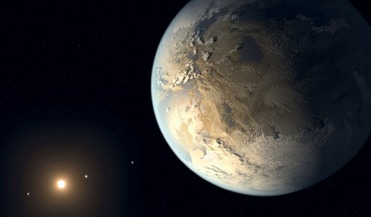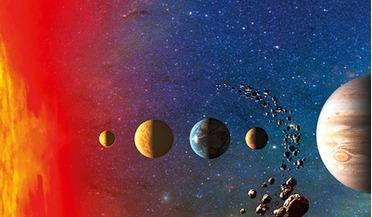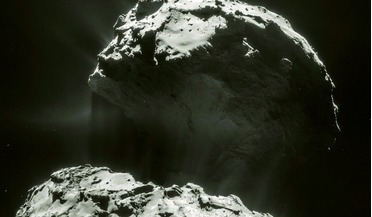 May 2018
PLATO the habitable zone explorer
May 2018
PLATO the habitable zone explorer
... of the planet as it passes in front of its host star - like we can with the transits of Venus or Mercury in our Solar System - but we can detect the small decrease in the star’s brightness that is caused by an exoplanet transit using sensitive...
 August 2018
Exoplanet census promises radical discoveries
August 2018
Exoplanet census promises radical discoveries
...planet to the Sun in our solar system. Does this mean that our solar system is unusual and that most planets...’s Kepler mission and WFIRST to the orbits of planets in our solar system. Both WFIRST and Kepler are sensitive to planets in Venus or Earth...
 January 2019
Visiting an asteroid to find out how life began
January 2019
Visiting an asteroid to find out how life began
...asteroid, which is a class thought to contain organic material and also to have remained relatively unchanged since the solar system’s formation. Rocks like Ryugu likely rained down on the early Earth, so if evidence of organic molecules or water are...
 June 2019
The challenge of planetary protection
June 2019
The challenge of planetary protection
...Indeed, recent scientific discoveries point to many new possible habitats and highlight extra astrobiological potential in the solar system, while also trailblazing new exploration targets and concepts. Some of these aspects concern the Martian moons...
 January 2020
Small body missions unveil interplanetary secrets
January 2020
Small body missions unveil interplanetary secrets
... Belt. Delivery of life-elements to the planets One of the most important findings from our exploration of the solar system is that it is a surprisingly soggy place, since water is found to some degree in almost all bodies. Because water is essential...
 January 2021
Evolution of volatiles on the Moon
January 2021
Evolution of volatiles on the Moon
... to imagine, but we now think we have found in the PSRs a time capsule of the history of the volatiles in our solar system. To understand how this occurred we have to start at the beginning. The lunar magnetosphere protecting its tenuous atmosphere...